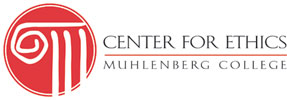Schedule of Events
Library Resources
Center for Ethics
Fall 2009
Ethics of Space/Power of Place
PROGRAM DESCRIPTION
Space. We know it when we see it—or so we think. There are the physical spaces we inhabit, like our homes, dorm rooms, classrooms, workplaces, sidewalks and streets. We experience them everyday. But how often do we acknowledge these spaces as bounded entities shaped by the constraints of culture and race, class and gender, economics and politics, ideology and style? And how often do we recognize them as components of the real and metaphoric local, state, national, and global communities that surround them? Then, too, we also talk of outerspace, cyberspace, and virtual space. These common terms denoting the unbounded, even limitless, distances in-between bodies express the abstract nature of space, while hinting at the scientific and technological tools used to measure or create them. Space, in short, is a complex concept that raises myriad ethical questions. What is space? How do we measure it? What boundaries delineate it? Who or what regulates it and who has access to it? How is it contested? This year-long programming series will foreground Muhlenberg College as an experimental space through which students, faculty, staff, and community members will engage these questions.
PROGRAM FORMAT
Our goal this year is to create an especially dynamic program with lots of opportunity for hands-on involvement by students, faculty, staff, and members of the wider community.
To that end, the programming will flow throughout the year and is grouped into three sub-themes. We begin by exploring BOUNDARIES, including the invisible, the visible, and the geo-political. We then move to CONTROLLING SPACE, which will challenge us to consider the differences and overlaps between public and private space, and physical and metaphorical space. We end the year with SPACE IN BODIES, which will tackle issues of shared identity, constructing differences, and the spaces between people.
Aside from public lectures and panel discussions, each semester will include an ongoing project, a campus change effort, and a community related project.
Questions about the Program?
Contact: Lanethea Mathews-Gardner, Director of the Center ([email protected])

